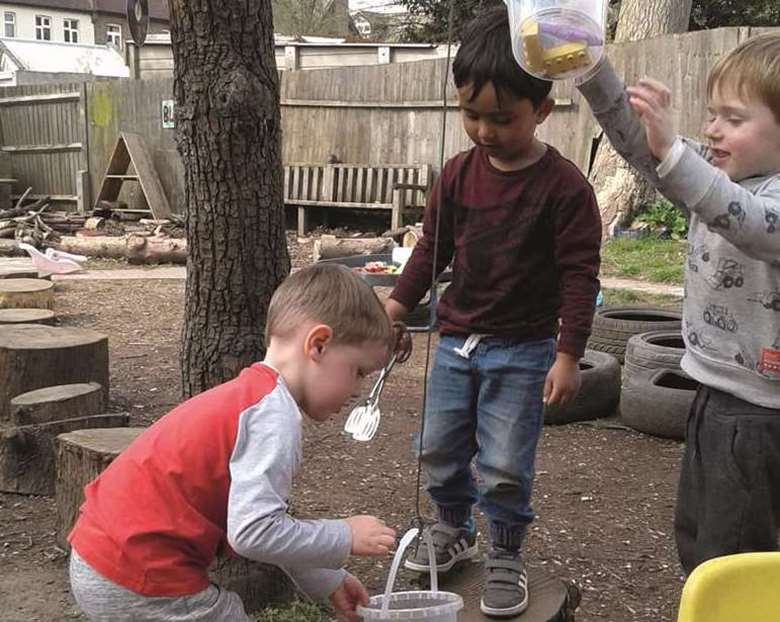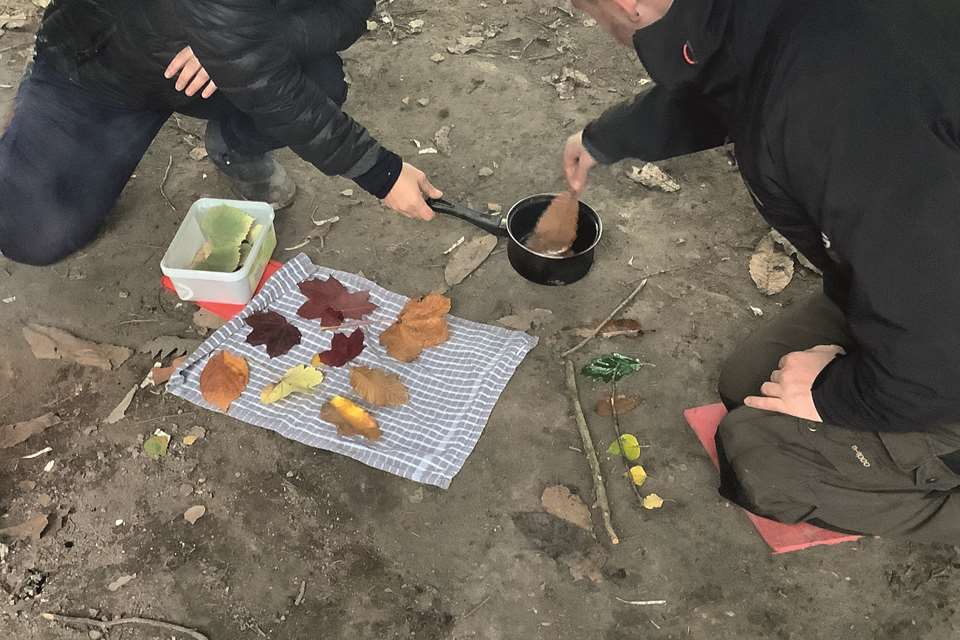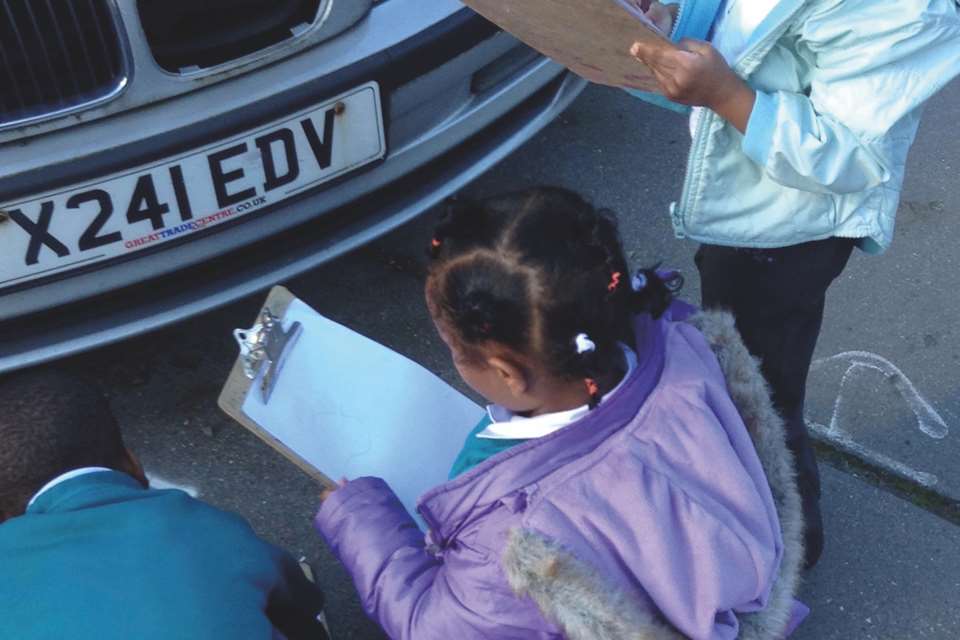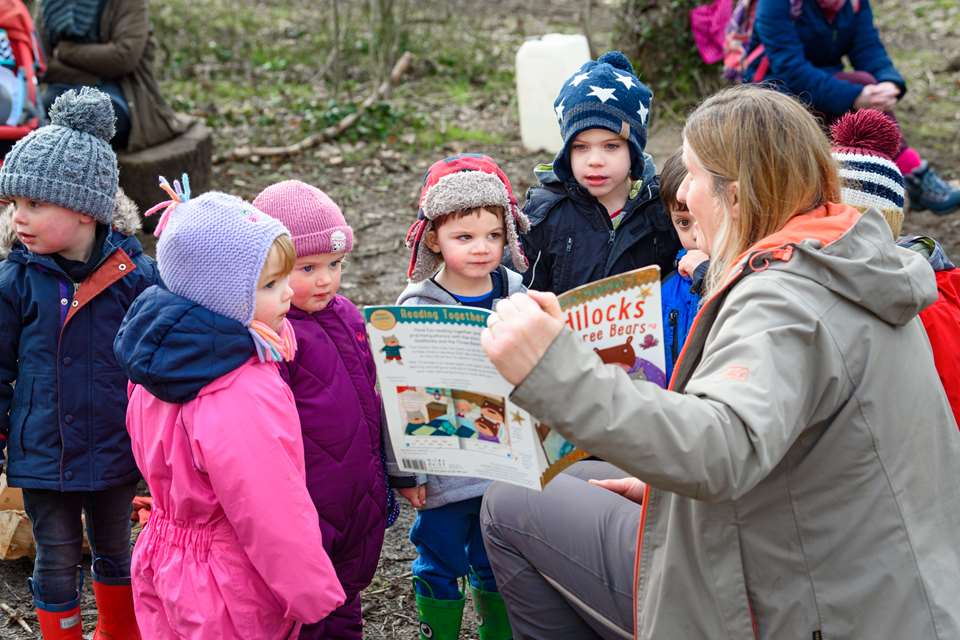Outdoor CPD: Part 11 - Be an ambassador
Gabriella Jozwiak
Tuesday, October 26, 2021
Action research projects in the outdoors can boost staff’s knowledge and enthusiasm for outside activities. Gabriella Jozwiak on being an advocate for learning outdoors

Knowledgeable and enthusiastic adults are crucial to unlocking the potential of outdoors.’ This statement is one of three Visions and Values for Outdoor Play in the Early Years agreed by outdoor learning experts in 2004 for the organisation Learning Through Landscapes. Professor Jan White, an early years outdoor provision consultant who helped write the statement, says to deliver effective outdoor education, practitioners should ‘deeply believe themselves that children must be outdoors’.
She says conducting action research projects in the outdoors is a simple way for early years staff to develop their knowledge and refresh their enthusiasm. ‘Action research is where you look at what’s happening in your outdoor provision, you identify an area you’d like to work on, and how you would work on it,’ she says. ‘Then you try it and see how well that’s worked: what impact has this change had? Is it more engaging for children? Is it meeting everyone’s needs?’
Crucially, White says, practitioners should focus on one area at a time rather than an entire outdoor space. ‘It’s actually more of a mindset,’ she says. ‘You continuously go around in this evaluation-trying-reviewing circle on a small, manageable scale.’ She also recommends involving children in the decision-making if possible.
Practitioners can also be inspired by other practitioners’ action research findings. Such sharing can take place online through Facebook groups or blogs (see part 10). However, White says one of the best ways to do CPD is to visit other settings. ‘Learn from not just what they’ve done, but what mistakes they made, or things that were difficult, and how they solved them,’ she recommends.
Play Learning Life director Julie Mountain, who also helped to shape the Vision and Values statements, says action research is effective because people retain information by experimenting. When delivering her training, Mountain includes a research element that is related to the individual’s setting so that it has direct relevance.
She says the process can help practitioners become familiar with parts of their outdoor setting that they may not have previously observed in detail. For example, baby-room staff could miss out on enabling environments outside if the setting has designated this area just for pre-schoolers. ‘The babies might be too little to go on the bikes and trikes outside, but maybe they would like to watch the older children on them,’ she suggests.
TALKING IT UP
When it comes to championing the outdoors to parents, practitioners must be bold and clear from day one of a child’s attendance, says Mountain. ‘Settings have to say: early years is an outdoor thing. Your child will be outdoors, not all day, but every day, whatever the weather.’
Parents can ask practitioners to keep children inside if it is raining or if they have a cold. But Mountain says if a practitioner has the knowledge and enthusiasm about outdoor learning, they can convince parents that the benefits outweigh the risks. ‘If you’ve got a cold, you might not want to spend all day sitting outside in a big puddle,’ she says. ‘But you can say to the parent: we’ll do what’s right for them today. A bit of fresh air, even if it’s in the arms of a practitioner going for a walk around the garden, can be good for your mental health and wellbeing.’
CASE STUDY: Rainbow Day Nurseries

Staff at the Rainbow Day Nurseries group of four settings in Bromley, south east London, had identified that they lacked confidence in teaching mathematics outside, so director Brid Stenson called upon Play Learning Life director Julie Mountain to deliver a training day to address the issue.
Staff from each setting engaged in action research projects to develop maths concepts in the outdoor area. Mountain brought loose parts collected from a dump to help practitioners explore different materials that are cheaply and easily accessible with which to deliver maths. These included cones, rope and baskets. ‘The staff went and did learning and exploring themselves like children,’ says Stenson. ‘It opened their eyes to the fact you don’t need extensive resources to get maths concepts across.’
The hands-on training gave staff confidence and they put their new learning into practice immediately as a result. ‘They did not need to be reminded of the training, but were inspired,’ she says. Their enthusiasm also rubbed off onto the children. ‘Children and staff have a new level of respect for the outdoor natural world.’
The changes resulted in improvements in the children’s learning. ‘When we looked at the early years profiles when they were going to school, the gaps that had appeared, including maths, had started to close,’ says Stenson.
The group has continued to use the action research approach for other CPD sessions, including one recently on introducing more Froebelian concepts outside.
Download Now








